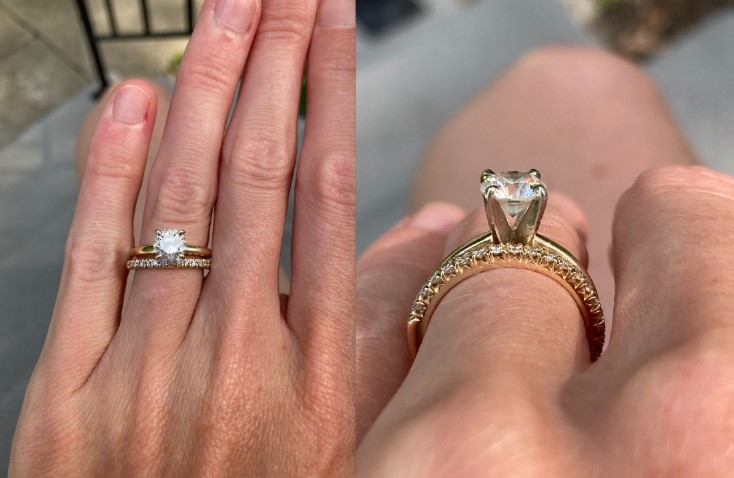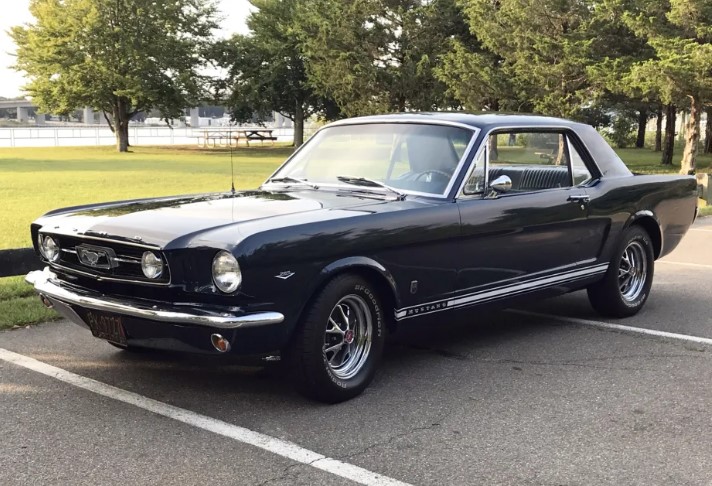Cat Cut, a made-in-Northeast Philly anti-theft program, promises a low-cost solution to an expensive problem — the surge in catalytic converter thefts, which bedevils car and truck owners whenever platinum and other precious-metal prices hit cyclical highs.
The program, hatched by NE Phila Connected town-watch leaders with backing from local insurers, enlists auto-repair shops to paint converters red and stamp them with vehicle identification numbers so they are harder to sell illicitly to scrappers. There’s even a warning decal to show that a car has been treated.
Here’s what it’s like to find out your catalytic converter has been looted: Press your ignition, and the engine rumbles to life — but super loud, as if it’s an airplane.
While you were asleep or at work, a thief crawled under, probably with one of those battery-powered pipe saws. With two butcher cuts, the thief sliced out your catalytic converter, a kind of mini-muffler that makes pollutants harmless, from the pipes between your wheels. Their goal is to sell it to a scrap dealer for the precious platinum, palladium or rhodium balls inside, which at the moment are worth half as much, just as much, and five times more than gold, respectively.
They hope to score maybe $200 for each stolen converter. It could cost you, and maybe your insurer, more than $2,000 to replace, so you can hope to pass your next inspection and stop provoking the neighbor’s car alarm each time you leave home.
“It’s become a common thing nowadays. It really bothers me, we get so many claims,” said Tatsiana Maroz, an Allstate insurance agent in Holland, Bucks County. “Those things cost a lot to replace. People have to pay their deductibles. And it’s not good for insurance companies. Everyone knows this is happening. But it’s been hard to incriminate someone who’s doing it, if there’s no proof it was taken from this specific vehicle.”
As precious-metals prices soared to thousands of dollars an ounce, following pandemic supply disruptions and the general rise in demand for rhodium, especially, in digital devices, catalytic converter thefts jumped nationally from about 100 a month in 2018, to triple that rate the next year — and zoomed to more than 1,200 last year, according to the National Insurance Crime Bureau.
“We’ve been dealing with this three, four years,” said Vasyl Droniv, of Prestige Auto Service in Huntingdon Valley. “At first, mainly with Toyota Priuses. But for the last year it’s become a really big problem for everybody.”
So Droniv was ready when Roman Zhukov and Roman Krilov, founders of the NE Phila Connected town watch group, came to him with Cat Cut, the program their group developed following police and insurers’ advice.
The goal: to make your catalytic converter “traceable, easier to identify in case of theft,” and to put thieves on notice, not just with the red paint but also with a window decal, “that the ‘cat’ is marked and will be harder to sell,” Zhukov said. The group is also spreading the word around the scrapyards clustered in several city and suburban neighborhoods.
Last Saturday Droniv’s shop held a special event to install Cat Cut. “We paint each catalytic converter with heat-resistant, bright red Rustoleum paint,” said Droniv. “Then we engrave the vehicle identification number [VIN] right on it. And we give them a decal, with the little logo, Cat Cut. So salvagers and junkyards are aware” that particular converter can be traced.
The procedure costs about $40 — Zhukov figured you can buy the materials at an auto-parts store for $20 and try it yourself at home.
At special events like last Saturday’s, the cost can be paid by participating insurance agencies — in that case by Maroz’s Allstate. “It was really, really good,” said Maroz. She got to know the people at Prestige, talked to the dozen or so drivers who were “Cat Cut,” and signed up half a dozen of the people she met for policies.
Zhukov said other vehicle owners have had the service done at their own expense, at shops including Rhawn Automotive, R&R Car Repair, GI Auto Repair, and Next Level Automotive Service, all in Northeast Philadelphia.
Can’t the thieves just break open the converters and take out the metal? They lack more-specialized tools and knowledge, and have mostly left that step to the buyers, up until now, said Zhukov.
Even by marking your converter, “you are not getting immunity from theft,” he acknowledged. “But you are making it possible to prosecute those responsible. We are hoping with this program we can slow down and eventually deter these crimes.”
Zhukov said he’s negotiating for events with mechanic shops in Port Richmond and other neighborhoods and with additional insurance agencies, including representatives of Farmers and State Farm.
Philadelphia City Council passed a resolution endorsing the program, an effort led by David Oh, a Republican, and several Democrats including Cindy Bass and Cherelle Parker, the majority leader. NE Phila Connect has also reached out to the city sheriff’s department and the Bucks and Montgomery County district attorneys to spread the word.
Residents have complained about the thefts for years and posted social media requests for surveillance videos, said Bob Stewart, an aide to State Sen. John Sabatina Jr., a Democrat who represents Northeast Philly. He said Capt. Richard Ritchie, of the Seventh Police District, noted the rise in thefts to community leaders, and “was happy to hear the community is doing this,” Stewart added.
If the program takes off, Zhukov said, his group has nothing to gain except the publicity. “What we did is public, royalty-free and accessible to everyone interested,” he said.






/cloudfront-us-east-1.images.arcpublishing.com/pmn/3DUEI6LZJBGJ7PDN2GF4U2XVH4.png)
More Stories
Essential Auto Repair Services Every Car Owner Should Know
Missouri couple left waiting days to get car back from mechanic
Diagnostic Network Launches New Module Swap System to Enhance Reprogramming Knowledge Among Members